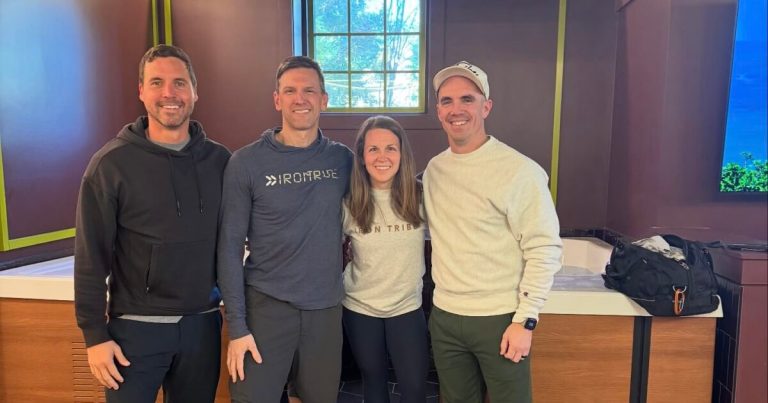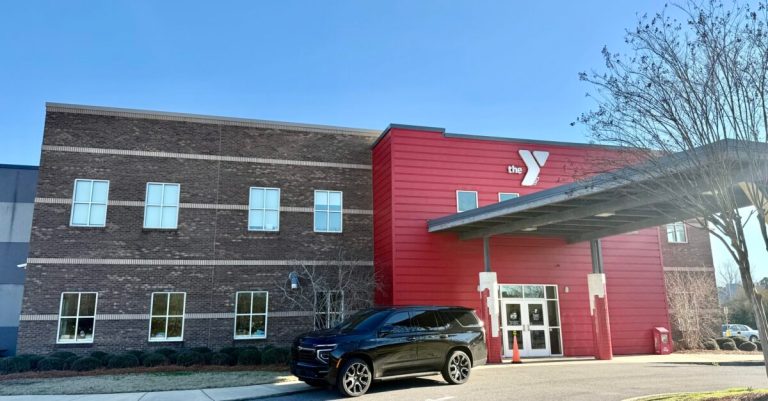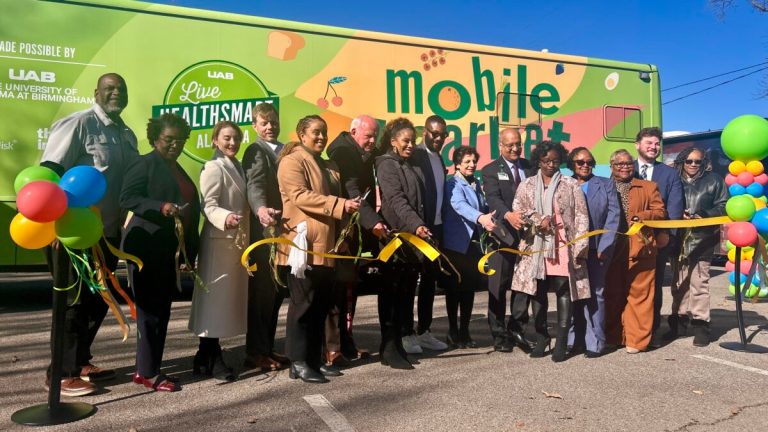Reviewed by: Sarah Gronberg
The fentanyl crisis in Jefferson County is urgent + acute—what you need to know now
Reading time: 7 minutes

Between 2019 and 2022, overdose deaths in Jefferson County almost doubled, and fentanyl-related overdose deaths increased by 275%. Let that sink in for a minute—the fentanyl crisis in Jefferson County is real.
Dr. Darlene Traffandstedt is the medical director for the Jefferson County Department of Health and leads the County’s efforts to address the opioid addiction and overdose crisis. We pulled key things you need to know from her recent presentation at the Rotary Club of Birmingham. Keep reading for all the details.
The fentanyl crisis in Jefferson County is affecting every neighborhood

What fentanyl is: Pharmaceutical fentanyl is a legal prescription medication that can be used for severe pain. According to the Centers for Disease Control, this synthetic opioid is up to 50 times stronger than heroin and 100 times stronger than morphine.
The problem: Powerful criminal organizations such as the Sinaloa cartel and others have figured out how to manufacture fentanyl themselves in clandestine labs and distribute it to communities across the US, where demand has skyrocketed since the pandemic.
“Most recent cases of fentanyl-related overdose are linked to illegally-made fentanyl, which is distributed through illegal drug markets for its heroin-like effect. It is often added to other drugs because of its extreme potency, which makes drugs cheaper, more powerful, more addictive, and more dangerous.”
CDC: Facts about Fentanyl
How it works: Fentanyl lands on the opioid or pain receptors in the brain to reduce pain. When it does that, it also slows down the respiratory, or breathing, center. First breathing stops, then the heart and finally, the person dies.

Who’s getting illegal fentanyl + where from?: Fentanyl often is mixed in with other drugs (think marijuana, edibles, cocaine, heroin), and can be manufactured in fake pill form so it looks like many other commonly-prescribed medications (for example Percocet or Adderall).
- Unfortunately, a potentially lethal dose is the size of a sesame seed or a few small grains of sand.
- Teenagers can unknowingly access a lethal dose on SnapChat for about $5, thinking they’re buying some other type of pill.
Cause of death: Most fentanyl deaths are because of fentanyl and something else: cocaine, heroin, methamphetamine…or xylazine, also known as “Tranq”—a powerful sedative approved for veterinary use.
There is hope: Narcan, or Naloxone, is a medication that can be administered with one squirt up the nose—after an overdose and before the heart stops, which can reverse the overdose and save a life.
Also: Before use, fentanyl test strips can check for the presence of fentanyl in other drugs, which is where it often shows up. You can get these from the Jefferson County Department of Health, from their many partners such as VitAL Alabama or from Amazon.
Learn more: Watch the Fentanyl episode on Trafficked with Mariana van Zeller at National Geographic.
What *you* can do about the fentanyl crisis in Jefferson County

Lethal overdose numbers are only going up in Jefferson County, so to reverse those numbers, we all need to get involved. Here are some things you can do:
- Invite JCDH to come to your workplace, school or community organization to give a presentation on fentanyl.
- Sign up for the free Narcan training + make sure you have Narcan on hand: 205.930.1065 | naloxonetraining@jcdh.org
- Get fentanyl test strips if anyone in your house is experimenting with or using any substances beyond those prescribed by a healthcare provider.
“Our message to every Alabamian is this: Never take any drug except those prescribed by your physician and filled by a pharmacist. Fake pills containing Fentanyl are everywhere in Alabama. They look identical to real medicine, but you won’t know until it’s too late. Don’t take the chance because one fake pill can kill.”
Dr. Julia Boothe, President, Medical Association of the State of Alabama
- Talk to your middle school students through young adults about fentanyl and about the dangers of taking any medications not prescribed by a healthcare provider. Look at the DEA’s One Pill Can Kill website together.
- “In Jefferson County, we’ve had a tenfold increase in emergency room visits for those ages 11 to 19 over the last three years for fentanyl overdose.” —Traffansdtadt
- Spread awareness on social media.
- Participate in International Overdose Awareness Day: August 31.
Check out these community organizations for useful resources to address the fentanyl crisis
- Addiction Prevention Coalition: pursuing freedom + healing from addiction, at all costs.
- AIDS Alabama: a safe setting to explore sobriety, find support and obtain referrals for help with drug and alcohol abuse.
- Alabama Adult and Teen Challenge: an addiction recovery and Christian discipleship program for men and women struggling with life-controlling problems that provides a safe and loving environment where people can receive the holistic care and long-term counseling necessary to change their lives.
- Alabama Department of Mental Health, 24/7 Substance Use Helpline: 844.307.1760
- Alahope Curriculum: a single curriculum that all Alabama health professions schools can use to teach their students about substance-use disorder and pain management.
- Alabama Poison Information Center at Children’s of Alabama: call 1-800-222-1222 if your child has ingested something you suspect to be poisonous. This hotline offers ree and confidential poison information and treatment recommendations to the public and health care providers 24 hours a day.
- American Red Cross: offers online First Aid for Opioid Overdoses training + CPR for suspected opioid overdose.
- Asbury United Methodist: offers a range of faith-based substance abuse support groups.
- Bradford Health Services: call 1-888-SOBER-40 or 1-888-762-3740 for help with addiction.
- Connect Alabama Treatment Finder App: Browse through the app for information about mental health, substance use, prevention, treatment and the latest information on behavioral health services located in your area.
- The Foundry Ministries: a Christ-centered ministry where people receive the tools they need to break the chains of addiction.
- Jimmie Hale Mission: The Active Recovery program is an in-depth, clinically-structured Christian group approach to helping residents understand and overcome the very issues that contribute to their substance abuse. In addition, each client works individually with a professional counselor throughout this 13 to 15-week process.
- Odds Are Alabama: the odds are high that fentanyl is hiding in many illegal drugs; know the facts.
- Recovery Resource Center, a program of Crisis Center, Inc.: 205.458.3377: Navigating the substance use treatment system can be confusing and overwhelming; the Recovery Resource Center is a collaborative initiative dedicated to simplifying that process by providing a central point of information. All services are voluntary and offered at no cost to the client.
- UAB Addiction Recovery: offers an individualized approach to the assessment and treatment of alcohol and substance use.
- VitAL Alabama: Through a framework of providers and partnerships between The University of Alabama and state agencies VitAL Alabama is improving the wellness of Alabamians.
- Will Bright Foundation: Breaking the barrier to recovery from addiction by bridging the gap between the bubble of recovery and taking that next step, through awareness, education and the provision of transitional living.
Get updates like this delivered to your inbox daily. Sign up for Bham Now’s free newsletter today.



